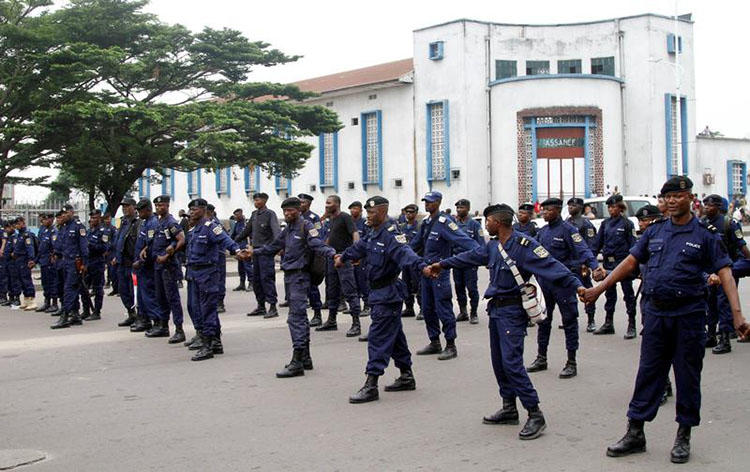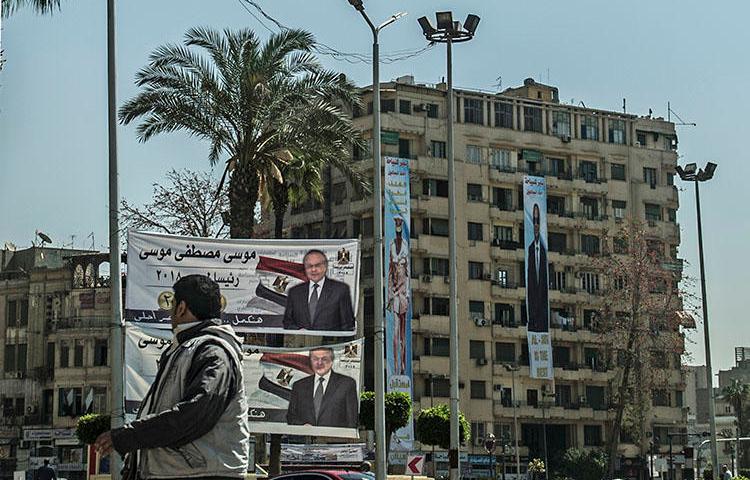
Journalists covering unrest in the DRC face arrests, assault, and internet shutdowns
On New Year’s Eve, as the world prepared to ring in 2018, Congolese journalist Edmon Izula was being repeatedly hit with a rifle and threatened at gunpoint by a member of the state security forces. Iluza was one of at least three journalists harassed by authorities that day, in a scenario that has become common…

Freedom of speech is guaranteed Aliyev says as Azerbaijan blocks news websites
President Ilham Aliyev claims that in Azerbaijan the internet is free and press freedom is guaranteed. But ahead of the April 11 snap elections, authorities have systematically silenced critical voices online through amending laws and blocking news websites, and hackers have attacked independent news outlets.

CPJ calls for full access to Geo TV to be restored
Washington, D.C., April, 3, 2018–CPJ today expressed concern over reports that the privately owned Pakistani television channel Geo TV is not accessible throughout parts of the country including Karachi, Lahore, and Multan, despite government assertions that authorities have taken no steps to block it.

Egyptian authorities lash out against media over election coverage
New York, March 30, 2018–The Committee to Protect Journalists today condemned the actions taken by Egyptian authorities against media outlets and journalists reporting on the country’s presidential election, which took place March 26-28.
CPJ calls on European Council and European Commission to raise press freedom with Turkey
CPJ calls on the presidents of the European Council and European Commission to request the release of Turkish journalists as a matter of priority during a scheduled meeting with President Recep Tayyip Erdoğan, in Varna, Bulgari.

DRC authorities cut access to internet and SMS ahead of protests
On December 30, 2017, the Democratic Republic of Congo’s Telecommunications Minister, Emery Okundji, ordered the country’s telecommunications providers to shut internet and SMS services across the country, according to a media report and the local press freedom group L’Observatoire de la liberté de la Presse en Afrique, (the Observatory of Press Freedom in Africa or…

Censorship tightens in Egypt as el-Sisi prepares for re-election bid
Ahead of elections in Egypt later this month, in which President Abdel Fattah el-Sisi is seeking a second term, the authoritarian leader’s government has further clamped down on press freedom, issuing warnings to the media and arresting critical journalists on “false news” charges. Even satirical TV shows have not been spared, with AFP reporting how…

Sri Lanka’s telecom authority blocks social media sites, messaging apps
New Delhi, March 7, 2018–The Committee to Protect Journalists today called on Sri Lankan authorities to restore access to social media and messaging applications. Citing Cabinet Spokesman Rajitha Senartne, Reuters reported that the government today asked service providers to block the networks amid anti-Muslim riots and violence. Sri Lanka yesterday imposed a state of emergency,…

Turkey Crackdown Chronicle: Week of February 26, 2018
Journalists sentenced An Istanbul court on February 28 sentenced Ahmet Altan, the former chief editor for the shuttered daily Taraf, to five years and 11 months in prison for “insulting the [Turkish] president,” and “making propaganda for a [terrorist] organization,” the online newspaper Diken reported.

Israeli troops arrest Palestinian journalist in West Bank
Beirut, February 16, 2018–The Committee to Protect Journalists is concerned by the arrest of Palestinian journalist Abdul Mohsen Shalaldeh. Israeli security forces arrested Shalaldeh, a reporter for the Hamas-affiliated Quds News Network, at his home in the southern West Bank town of Sa’ir, on February 15, according to news reports, the Palestinian Journalists Syndicate, and…